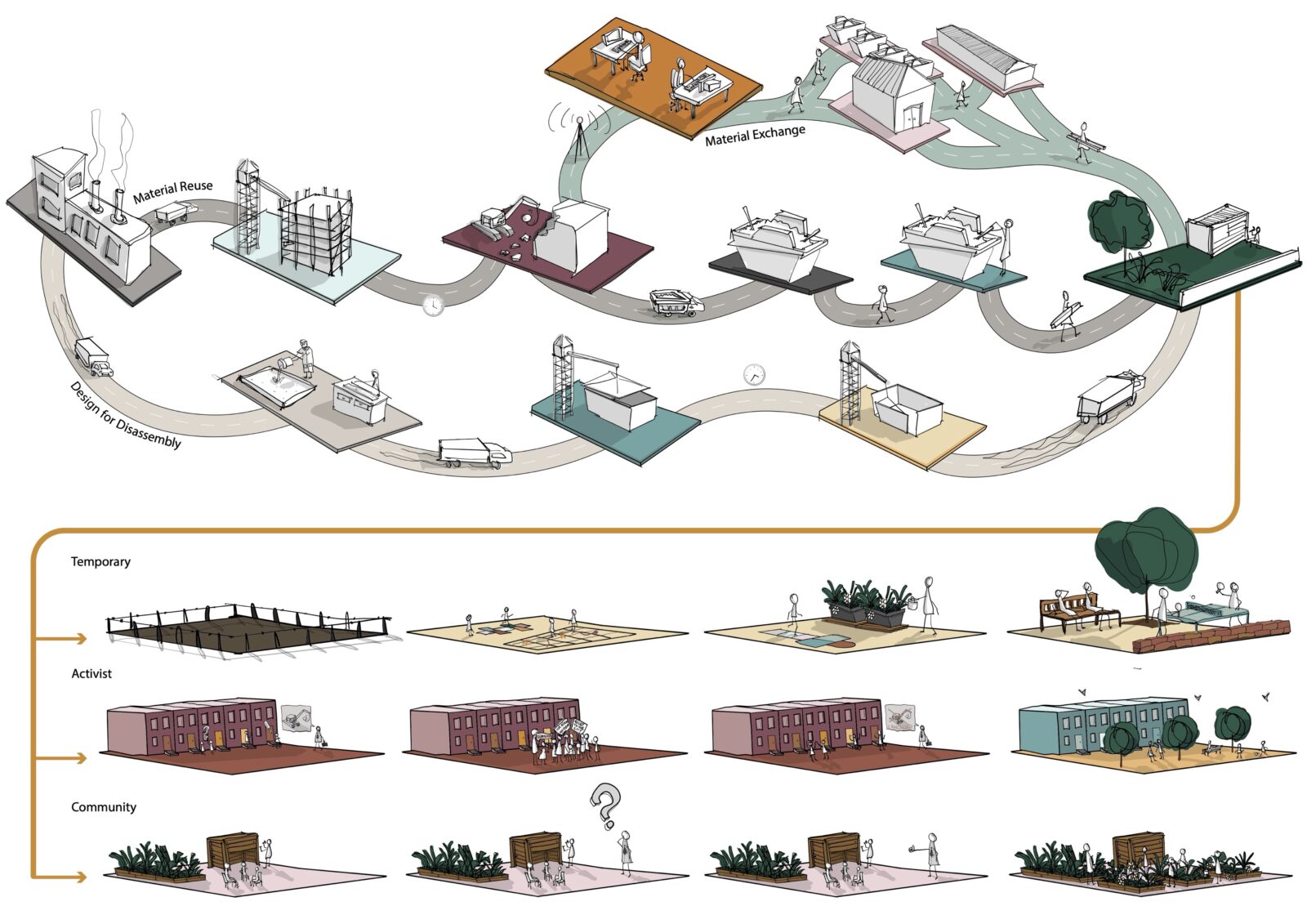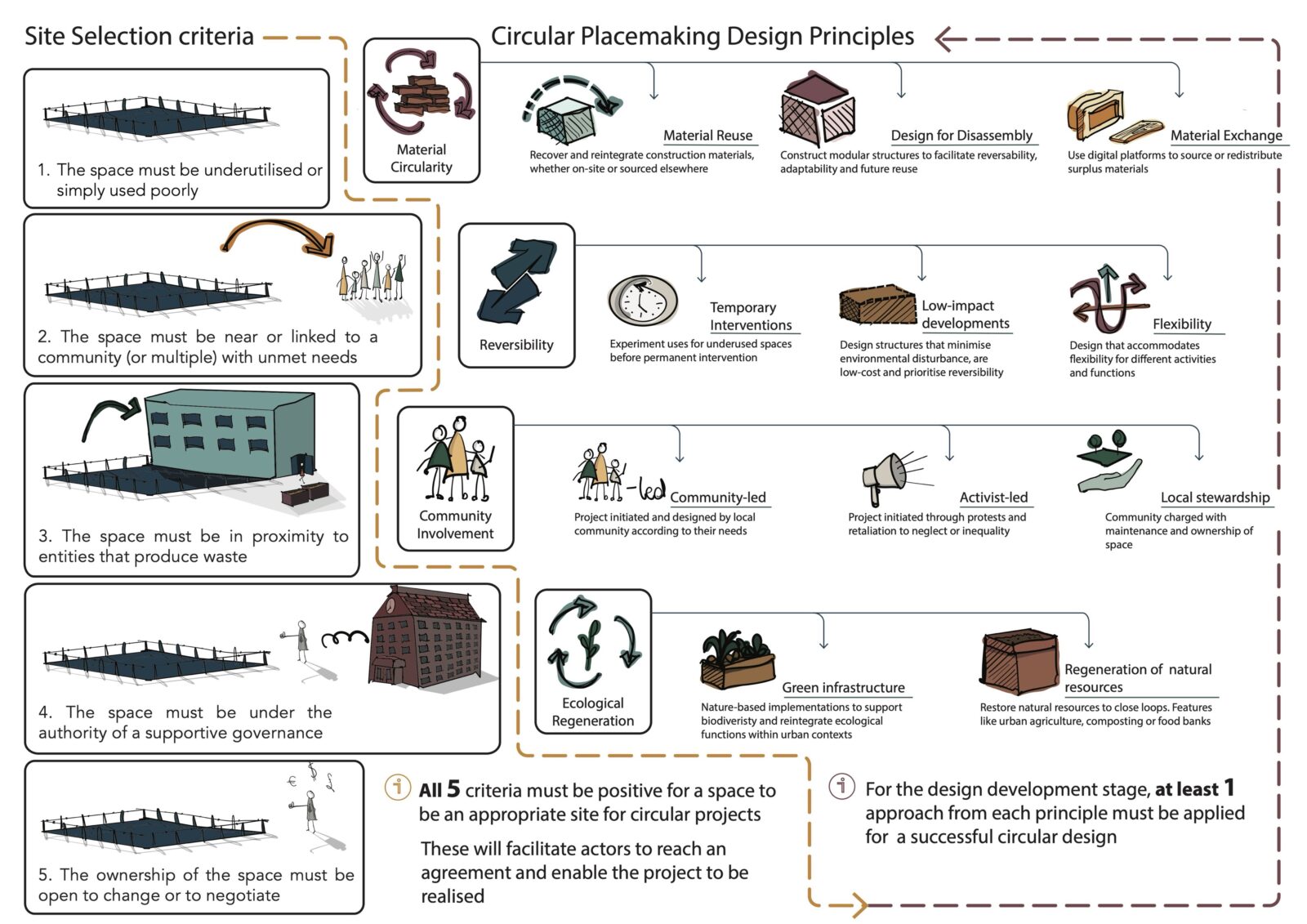Maxime Draaisma MA Urban Design 2025


Circular Placemaking
This hybrid design thesis tests the hypothesis that the local circular economy has a role in improving underused urban spaces. It explores how integrating circular economy principles into participatory urban design might provide socially engaged, low-impact environments that minimise waste, regenerate natural resources, educate its users and provide a replicable framework for other circular places.
This thesis follows an iterative approach by creating a theoretical framework and evaluating case studies before selecting a site and beginning to design an approach and feeding back into the framework. Applying the criteria, an underused car park in Islington, London was identified as a suitable location.
Pre-design consultations were conducted with experts and the neighbouring stakeholder, Culpeper Community Garden, who expressed their need for locally sourced wood and soil remediation. Iterations of the proposal were presented at further stakeholder meetings. The feedback received alongside the theoretical framework helped to refine the design to address the practical needs of the area and exposed limitations in the draft framework.
As a result, a third framework dimension was included: placemaking guidelines that ensure safety, operational resilience and long-term viability. Ultimately, the outputs of this thesis demonstrate that by embedding local circular economy principles to improve underused urban spaces, community needs can be both considered and addressed, while reshaping the way materials are used and created, offering an opportunity for the design to have important educational, environmental and systemic impacts. By merging theory, case study and design practice, Circular Placemaking offers a replicable framework for transforming neglected urban sites into resilient, regenerative community assets.
